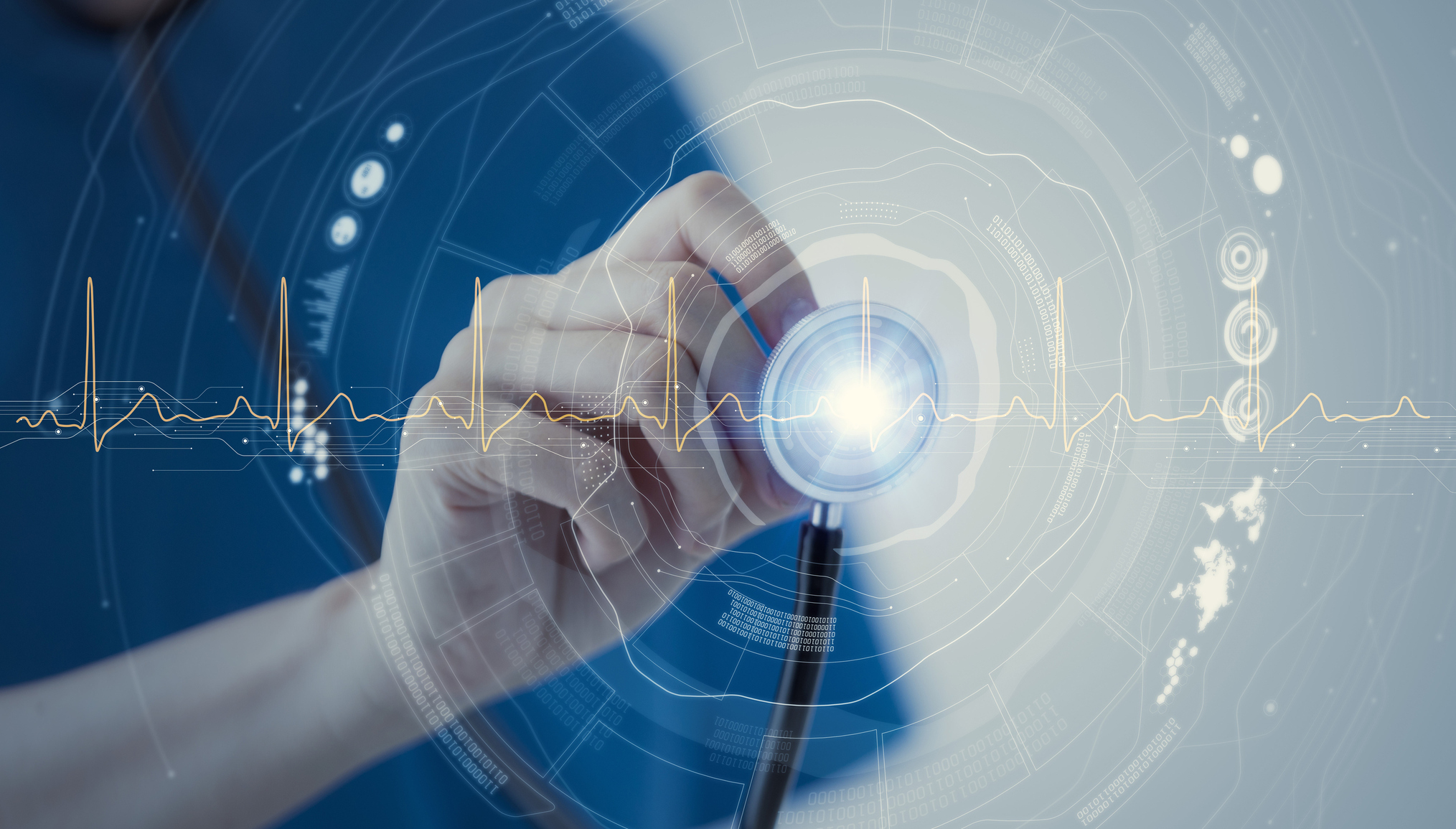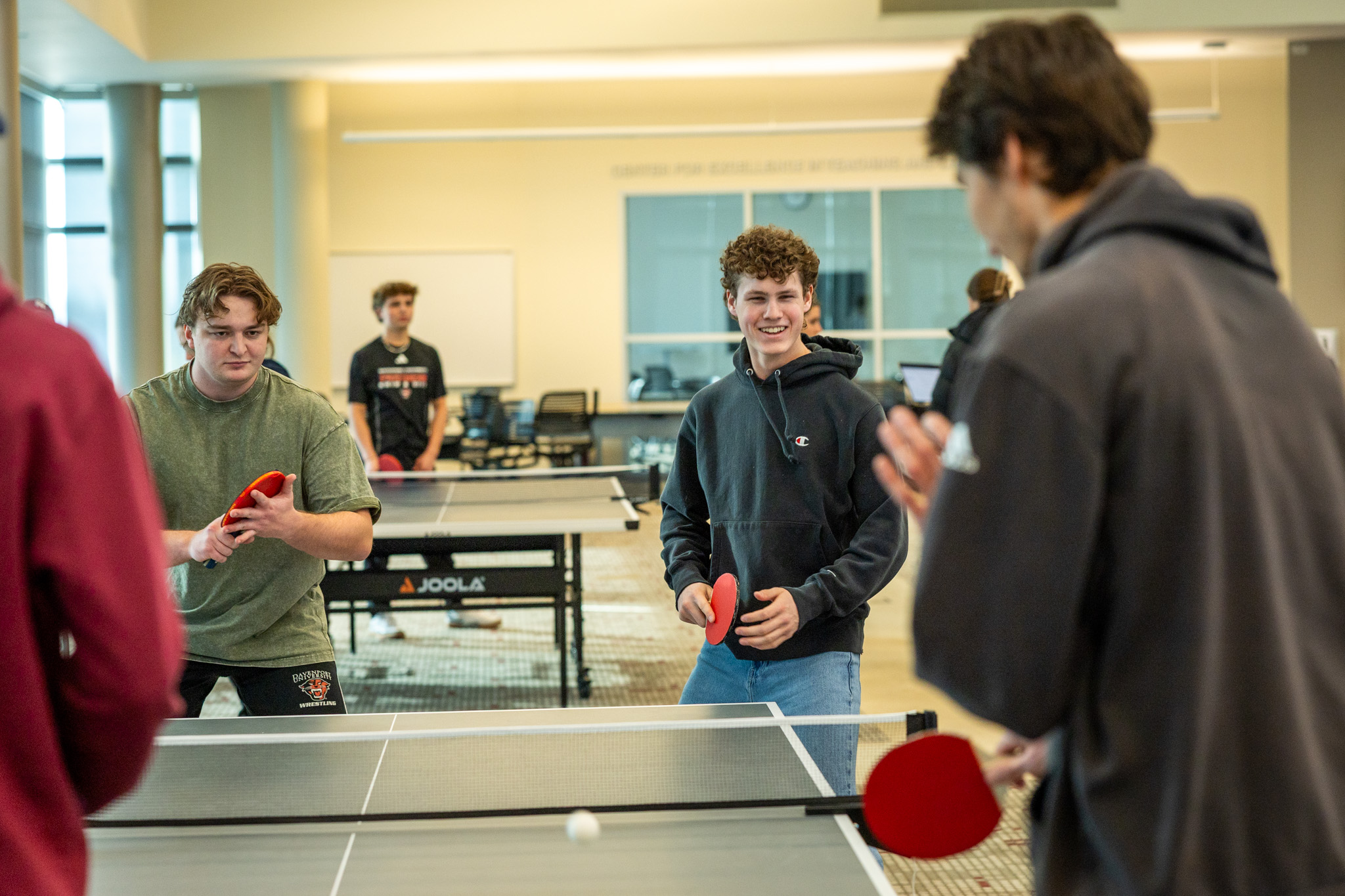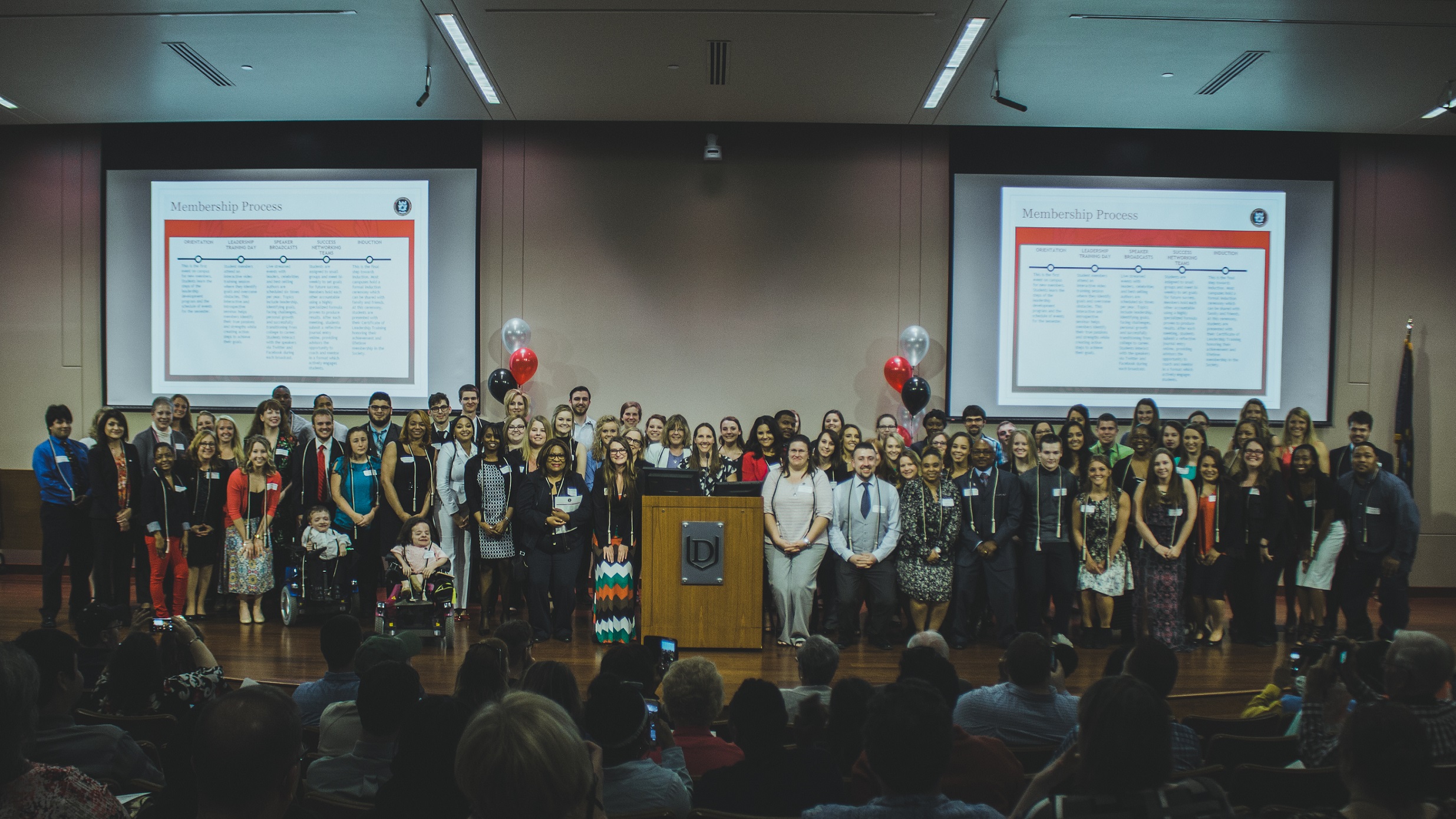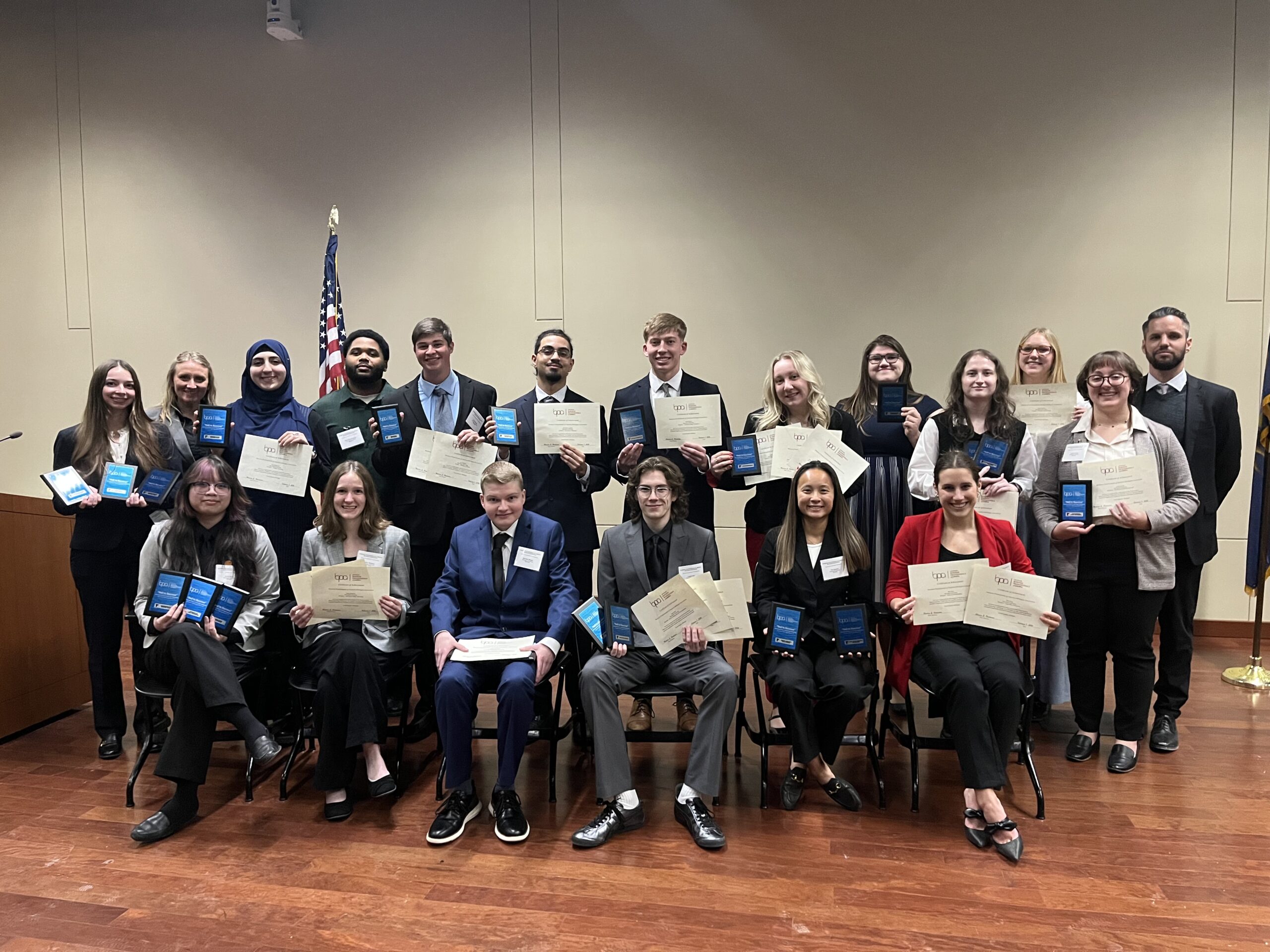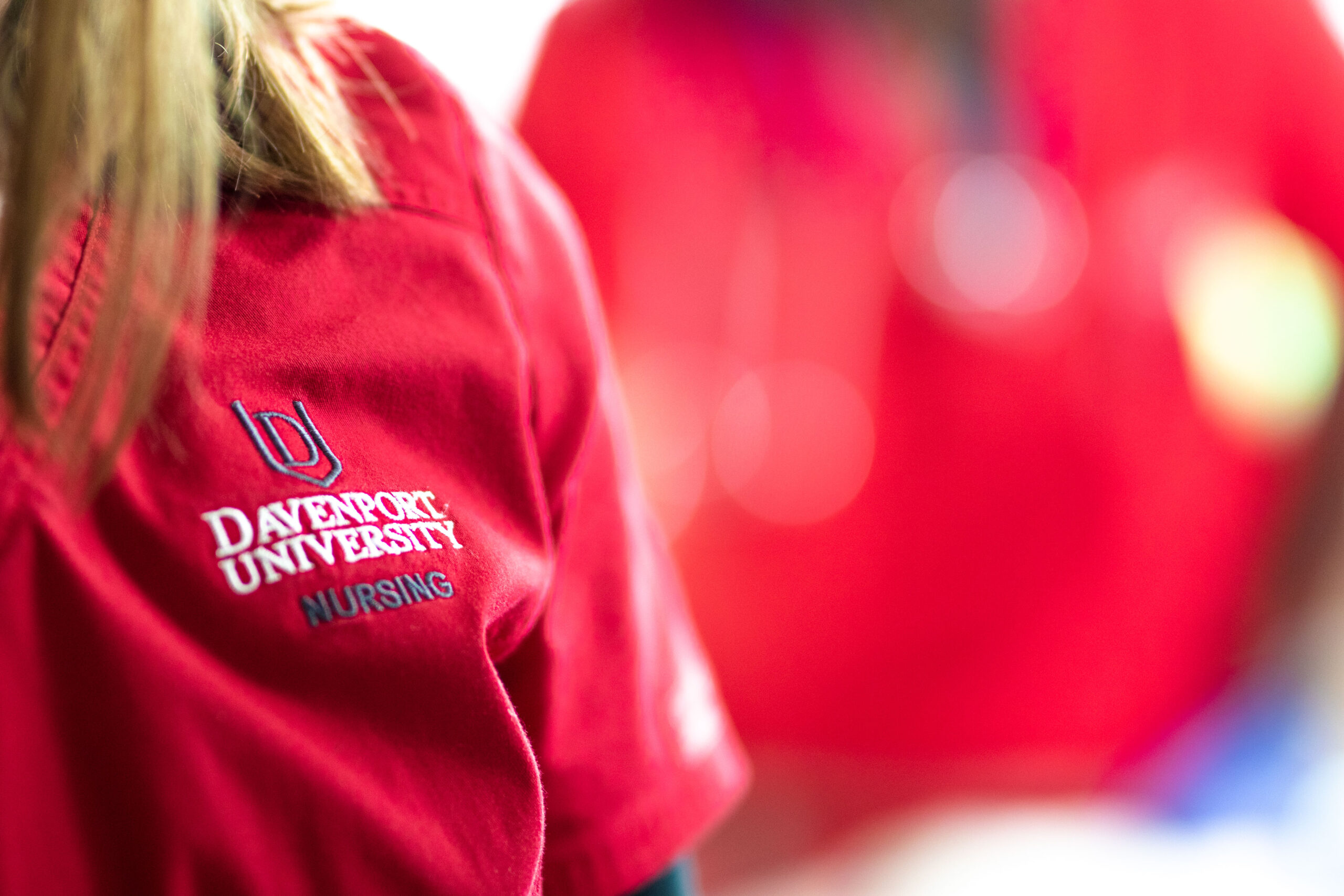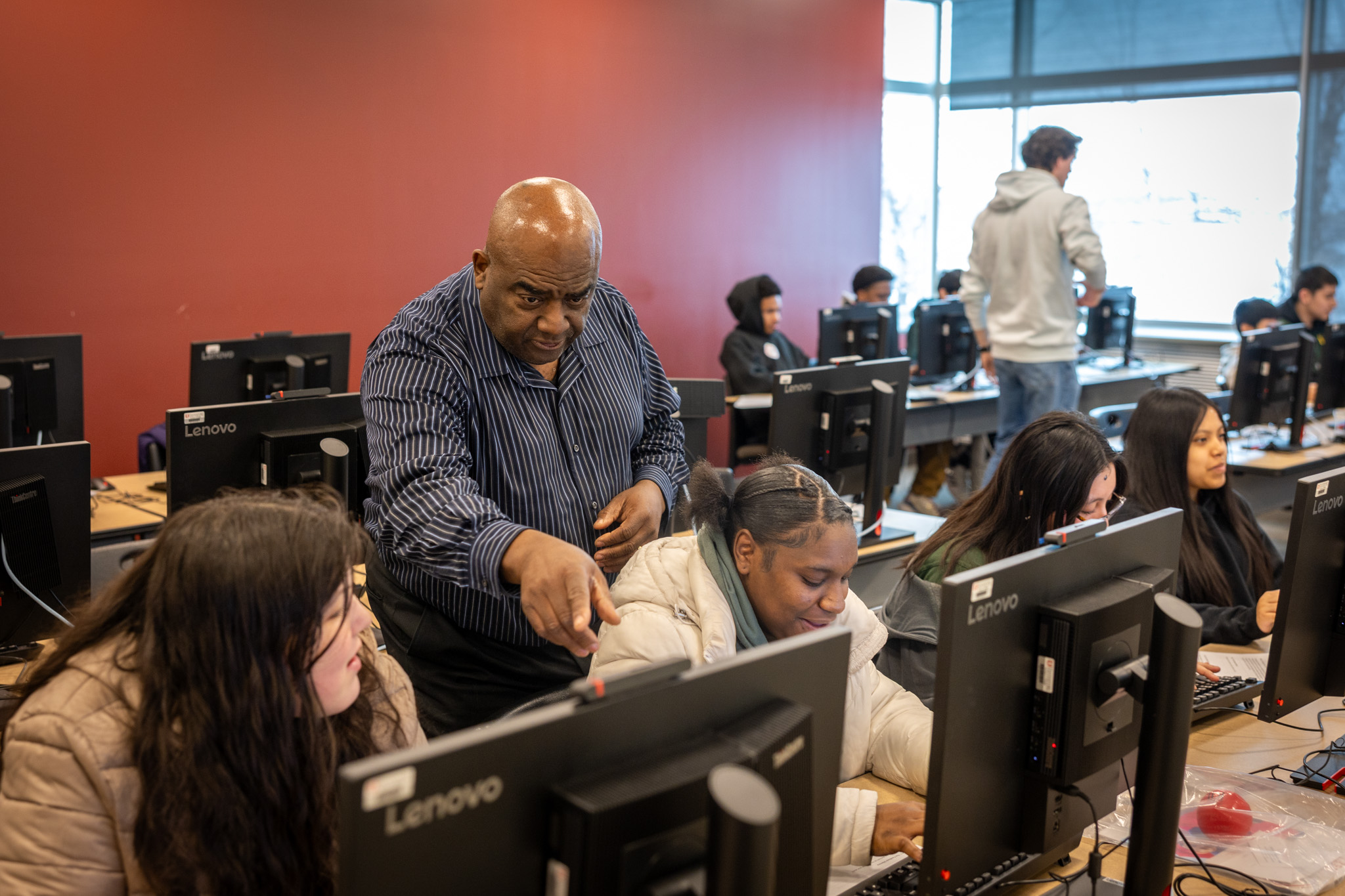In the early stages of the COVID-19 crisis, it became clear that there was a lack of training available to guide nursing students through the process of caring for and supporting patients during a pandemic. In response to this deficit, Davenport nursing faculty quickly realized the need to strengthen the training they offered to ensure students were prepared to care for patients suffering from COVID-19.
Tapping into funding provided by the Registered Nurse Primary Care Grant enabled Davenport to offer a new, innovative approach to its nursing program using holographic technology.
Using this cutting-edge technology and leading scientific research, modules were created to safely simulate COVID-19 patient scenarios through a holographic display, enabling students to adapt to the latest trends and treatments in health care.
Now that the COVID-19 crisis has passed, Davenport continues to use holographic technology to train our future nurses in other areas, such as labor and delivery, respiratory distress, and more.
“This technology provides an innovative teaching strategy by bringing to life real-world applications, all in an extended reality environment in which students can collaborate and engage with shared holographic models,” said Amy Stahley, Associate Dean of Nursing at Davenport.
How it works
To begin, students strap on the holographic headset, and a virtual patient appears. The nursing student then communicates with the patient to learn more about their symptoms. Using their hands, the student can reach for their equipment and simulate providing patient care – all while receiving real-time feedback on how to improve their responses.
The holographic headset can be worn by an individual and used for a single learning experience or worn by a student or faculty member while others view the virtual interaction on a screen remotely. The remote virtual simulation has enabled Davenport’s nursing faculty to create a connected learning environment across Davenport’s nursing campuses.
The many benefits of holographic technology
These custom-built modules provide nursing students with a foundational understanding of illnesses, treatment processes, and first-hand knowledge of how to best care for patients. Upon completing the education modules, students can describe the illness, suggest and begin treatment, identify societal challenges, and follow proper procedures for using personal protective equipment (PPE).
The technology has allowed future nurses to be comfortable and knowledgeable when working with prospective patients. It ensures that future diagnosis and treatment will be carried out in the safest manner possible for the patient and all members of the health care team.
The Davenport Nursing faculty have evaluated the effectiveness of the software, and results indicate improved overall confidence in nursing skill competencies and professional behaviors. Assessed areas include everything from the nurses’ documentation of the patient’s health to their ability to apply critical thinking to patient care situations.
Extending the resources to others
Davenport students aren’t the only ones to benefit from the resource. The COVID-19 modules were bundled with a faculty guide and student worksheets to create a new curriculum shared with Michigan healthcare partners.
In addition to using the holographic technology to train Davenport nurses, other areas of the university are also taking advantage of the cutting-edge resource. Daniel Palmatier, Pharm.D. and Science Department Chair & Assistant Professor at Davenport, hopes to use the technology in biology classes, for anatomy and physiology-related activities, hands-on health events, and other STEM-related community outreach events.
To learn more about Davenport’s bachelor of science in nursing or other nursing programs and their advanced teaching techniques, please visit www.davenport.edu/nursing.
This project was supported 2020-2021 by the Health Resources and Services Administration (HRSA) of the U.S. Department of Health and Human Services (HHS) under grant number T1PHP39093 and title Registered Nurse in Primary Care COVID totaling $78,571.00, with 0% financed with nongovernmental sources. This information or content and conclusions are those of the author and should not be construed as the official position or policy of, nor should any endorsements be inferred by HRSA, HHS or the U.S. Government.
Clinical Competency Questionnaire (Liou S, Cheng C. Developing and validating the clinical competence questionnaire: a self-assessment instrument for upcoming baccalaureate nursing graduates. J Nurs Educ Pract. 2014;4(2):56 66.).
Share This Story!
In the early stages of the COVID-19 crisis, it became clear that there was a lack of training available to guide nursing students through the process of caring for and supporting patients during a pandemic. In response to this deficit, Davenport nursing faculty quickly realized the need to strengthen the training they offered to ensure students were prepared to care for patients suffering from COVID-19.
Tapping into funding provided by the Registered Nurse Primary Care Grant enabled Davenport to offer a new, innovative approach to its nursing program using holographic technology.
Using this cutting-edge technology and leading scientific research, modules were created to safely simulate COVID-19 patient scenarios through a holographic display, enabling students to adapt to the latest trends and treatments in health care.
Now that the COVID-19 crisis has passed, Davenport continues to use holographic technology to train our future nurses in other areas, such as labor and delivery, respiratory distress, and more.
“This technology provides an innovative teaching strategy by bringing to life real-world applications, all in an extended reality environment in which students can collaborate and engage with shared holographic models,” said Amy Stahley, Associate Dean of Nursing at Davenport.
How it works
To begin, students strap on the holographic headset, and a virtual patient appears. The nursing student then communicates with the patient to learn more about their symptoms. Using their hands, the student can reach for their equipment and simulate providing patient care – all while receiving real-time feedback on how to improve their responses.
The holographic headset can be worn by an individual and used for a single learning experience or worn by a student or faculty member while others view the virtual interaction on a screen remotely. The remote virtual simulation has enabled Davenport’s nursing faculty to create a connected learning environment across Davenport’s nursing campuses.
The many benefits of holographic technology
These custom-built modules provide nursing students with a foundational understanding of illnesses, treatment processes, and first-hand knowledge of how to best care for patients. Upon completing the education modules, students can describe the illness, suggest and begin treatment, identify societal challenges, and follow proper procedures for using personal protective equipment (PPE).
The technology has allowed future nurses to be comfortable and knowledgeable when working with prospective patients. It ensures that future diagnosis and treatment will be carried out in the safest manner possible for the patient and all members of the health care team.
The Davenport Nursing faculty have evaluated the effectiveness of the software, and results indicate improved overall confidence in nursing skill competencies and professional behaviors. Assessed areas include everything from the nurses’ documentation of the patient’s health to their ability to apply critical thinking to patient care situations.
Extending the resources to others
Davenport students aren’t the only ones to benefit from the resource. The COVID-19 modules were bundled with a faculty guide and student worksheets to create a new curriculum shared with Michigan healthcare partners.
In addition to using the holographic technology to train Davenport nurses, other areas of the university are also taking advantage of the cutting-edge resource. Daniel Palmatier, Pharm.D. and Science Department Chair & Assistant Professor at Davenport, hopes to use the technology in biology classes, for anatomy and physiology-related activities, hands-on health events, and other STEM-related community outreach events.
To learn more about Davenport’s bachelor of science in nursing or other nursing programs and their advanced teaching techniques, please visit www.davenport.edu/nursing.
This project was supported 2020-2021 by the Health Resources and Services Administration (HRSA) of the U.S. Department of Health and Human Services (HHS) under grant number T1PHP39093 and title Registered Nurse in Primary Care COVID totaling $78,571.00, with 0% financed with nongovernmental sources. This information or content and conclusions are those of the author and should not be construed as the official position or policy of, nor should any endorsements be inferred by HRSA, HHS or the U.S. Government.
Clinical Competency Questionnaire (Liou S, Cheng C. Developing and validating the clinical competence questionnaire: a self-assessment instrument for upcoming baccalaureate nursing graduates. J Nurs Educ Pract. 2014;4(2):56 66.).
Share This Story!
Stay connected!
Get the latest Davenpost News delivered to your inbox!
Related Stories
The familiar pop-pop of ping-pong balls filled the CLE at Davenport University’s W.A. Lettinga Grand Rapids Campus as students, staff [...]
This fall marked the 19th annual homecoming at Davenport University. As a part of this celebration, we honored a special [...]
On Sunday, April 23, 140 students were recognized by Davenport’s chapter of the National Society of Leadership & Success (NSLS). [...]
Latest Stories
Davenport University’s Business Professionals of America (BPA) students once again took top honors at the recent Postsecondary State Leadership Conference, [...]
When Sarah Hansen, Davenport University College of Health Professions faculty member, was invited to speak to her daughter’s seventh-grade class [...]
Photo: College of Technology faculty member, Tony McCutchen guides students through the "AI for Equitable Teaching" segment of the workshop [...]

